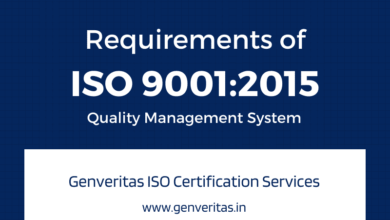Kosher Certification: Ensuring Quality and Compliance

The Kosher Certification holds immense significance for individuals and businesses seeking to provide food products that comply with Jewish dietary laws. With a growing demand for kosher products in various markets, understanding the ins and outs of Kosher Certification is vital. In this comprehensive guide, we will delve into the intricacies of Kosher Certification, explore its benefits, address common FAQs, and highlight the importance of this certification in today’s diverse culinary landscape.
What is Kosher Certification?
Kosher Certification refers to the rigorous process by which a food product is determined to meet the strict standards and requirements outlined by Jewish dietary laws. These laws, known as kashrut, govern the preparation, handling, and consumption of food products in accordance with Jewish traditions. Kosher Certification ensures that products adhere to these guidelines, granting consumers confidence in the kosher status of the food they purchase.
The Importance of Kosher Certification
The significance of Kosher Certification extends beyond religious observance. Kosher products are sought after by a diverse range of consumers, including those who follow kosher dietary laws, individuals with specific dietary restrictions, and those who perceive kosher products to be of higher quality. Kosher Certification enhances the marketability and reputation of food products, leading to increased consumer trust and broader market reach.
The Process of Obtaining Kosher Certification
To obtain Kosher Certification, manufacturers must engage with a reputable kosher certification agency. The process typically involves a thorough inspection of the manufacturing facilities, ingredients, and production methods to ensure compliance with kosher guidelines. The certification agency will issue a Kosher Certification once all requirements are met, allowing the manufacturer to label their products as kosher.
Understanding Kosher Dietary Laws
Kosher dietary laws encompass various aspects, including the sourcing of ingredients, production methods, and the prevention of cross-contamination. The laws dictate the types of animals that can be consumed, how they are slaughtered, and the separation of meat and dairy products. Additionally, kosher laws extend to the production and handling of processed foods, additives, and equipment used during manufacturing.
Benefits of Kosher Certification for Businesses
- Expanded Market Reach: Kosher Certification opens doors to new markets, including Jewish communities, individuals with dietary restrictions, and health-conscious consumers seeking quality products.
- Enhanced Consumer Trust: Kosher Certification builds trust and credibility among consumers, fostering brand loyalty and positive word-of-mouth.
- Improved Product Quality: The strict guidelines of Kosher Certification often result in heightened product quality, as the certification process ensures compliance with rigorous standards.
- Competitive Advantage: Having a Kosher Certification differentiates businesses from competitors and allows them to tap into a unique market niche.
Benefits of Kosher Certification for Consumers
- Assurance of Compliance: Kosher Certification provides consumers with a reliable indicator that the product meets the requirements of Jewish dietary laws, giving them peace of mind.
- Transparency and Clarity: The Kosher Certification label makes it easier for consumers to identify suitable products, saving them time and effort in their purchasing decisions.
- Trustworthy Quality Control: The rigorous inspection and monitoring process inherent in Kosher Certification assures consumers that the products they consume meet strict standards of quality and purity.
Different Types of Kosher Certification
Several kosher certification agencies exist worldwide, each with its own symbol or label denoting kosher status. Some prominent agencies include the Orthodox Union (OU), OK Kosher Certification, and Star-K. It is essential for businesses to understand the varying symbols and certifications to ensure they align with the target market’s preferences and requirements.
Common Misconceptions about Kosher Certification
- Kosher means only rabbinical blessing: Contrary to popular belief, Kosher Certification involves much more than a rabbi’s blessing. It encompasses strict adherence to a set of comprehensive guidelines.
- Kosher is only for Jewish consumers: While kosher products hold significant importance within Jewish communities, they are also sought after by individuals with specific dietary restrictions and those who perceive them to be of higher quality.
- Kosher is too complicated and costly: While the certification process may require adjustments and additional scrutiny, the benefits, including market expansion and improved product quality, often outweigh the associated costs.
FAQs about Kosher Certification
- Is Kosher Certification only for food products?
- No, Kosher Certification is not limited to food products. It can also be obtained for non-food items, such as cleaning supplies, cosmetics, and pharmaceuticals.
- How long does the Kosher Certification process typically take?
- The duration varies depending on factors such as the complexity of the manufacturing process and the certification agency. It can range from several weeks to a few months.
- Is Kosher Certification recognized worldwide?
- Yes, Kosher Certification has global recognition. Kosher symbols and certifications are widely understood and accepted by consumers in many countries.
- Do all kosher products carry the same level of certification?
- No, different kosher symbols and certifications denote varying levels of compliance. Consumers should look for symbols that align with their personal level of observance or dietary needs.
- Can a product lose its Kosher Certification?
- Yes, if a manufacturer fails to maintain compliance with the kosher guidelines or makes significant changes to their production process without appropriate approval, the Kosher Certification can be revoked.
- Are all kosher products labeled with a Kosher Certification symbol?
- While most kosher products carry a recognizable Kosher Certification symbol, not all products may display the symbol due to cost considerations or other factors. However, they can still be certified kosher.
Conclusion
Kosher Certification plays a crucial role in ensuring compliance with Jewish dietary laws and meeting the growing demand for kosher products worldwide. It benefits both businesses and consumers, guaranteeing the quality and integrity of the products consumed. By understanding the significance of Kosher Certification and its impact on market reach and consumer trust, businesses can capitalize on this growing trend while providing an inclusive culinary experience for individuals of diverse backgrounds.





